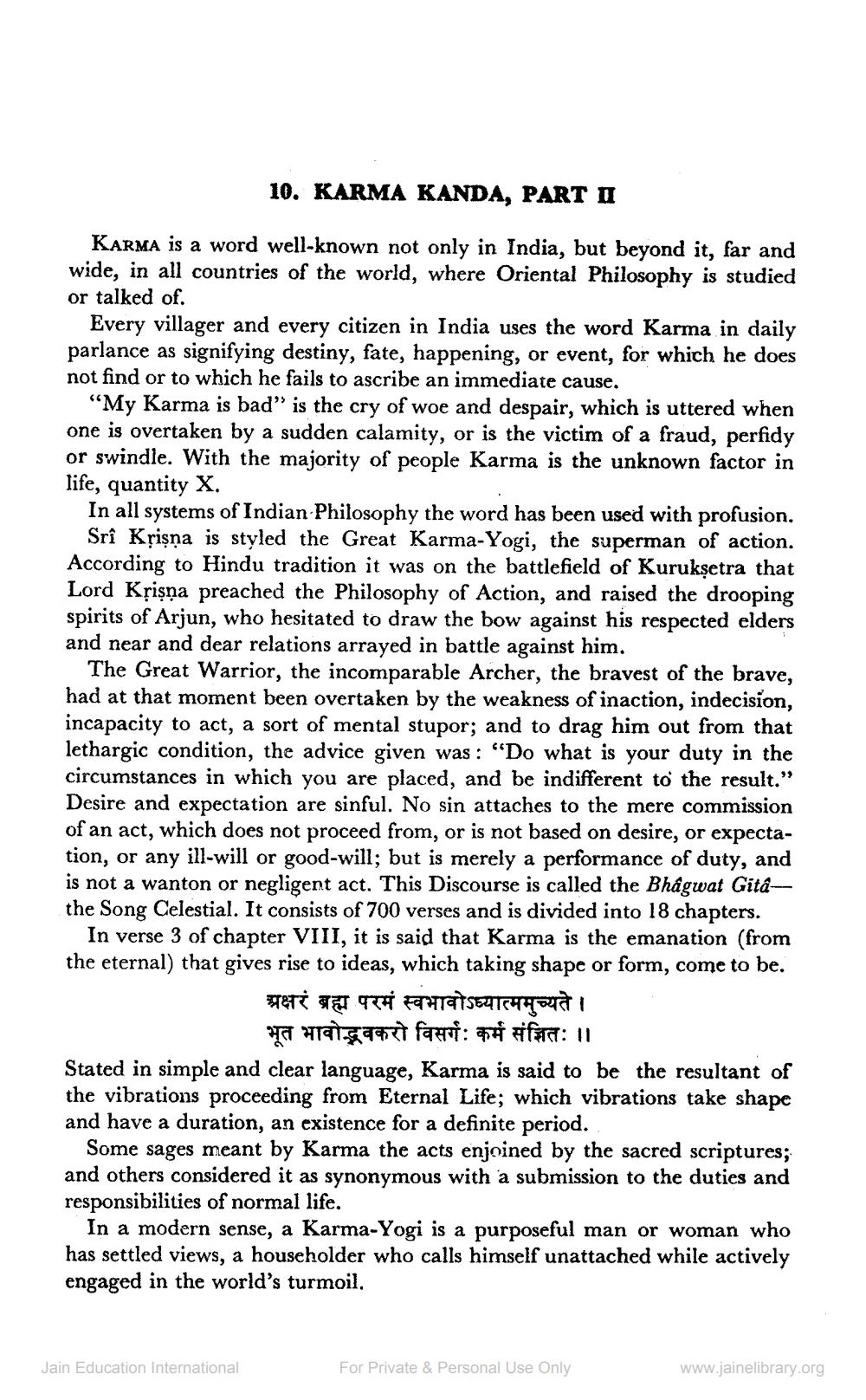________________
10. KARMA KANDA, PART I
KARMA is a word well-known not only in India, but beyond it, far and wide, in all countries of the world, where Oriental Philosophy is studied or talked of.
Every villager and every citizen in India uses the word Karma in daily parlance as signifying destiny, fate, happening, or event, for which he does not find or to which he fails to ascribe an immediate cause.
“My Karma is bad" is the cry of woe and despair, which is uttered when one is overtaken by a sudden calamity, or is the victim of a fraud, perfidy or swindle. With the majority of people Karma is the unknown factor in life, quantity X.
In all systems of Indian Philosophy the word has been used with profusion.
Srî Kțișna is styled the Great Karma-Yogi, the superman of action. According to Hindu tradition it was on the battlefield of Kurukşetra that Lord Krişņa preached the Philosophy of Action, and raised the drooping spirits of Arjun, who hesitated to draw the bow against his respected elders and near and dear relations arrayed in battle against him.
The Great Warrior, the incomparable Archer, the bravest of the brave, had at that moment been overtaken by the weakness of inaction, indecision, incapacity to act, a sort of mental stupor; and to drag him out from that lethargic condition, the advice given was: "Do what is your duty in the circumstances in which you are placed, and be indifferent to the result." Desire and expectation are sinful. No sin attaches to the mere commission of an act, which does not proceed from, or is not based on desire, or expectation, or any ill-will or good-will; but is merely a performance of duty, and is not a wanton or negligent act. This Discourse is called the Bhagwat Gita the Song Celestial. It consists of 700 verses and is divided into 18 chapters.
In verse 3 of chapter VIII, it is said that Karma is the emanation (from the eternal) that gives rise to ideas, which taking shape or form, come to be.
अक्षरं ब्रह्म परमं स्वभावोऽध्यात्ममुच्यते।
भूत भावोद्भवकरो विसर्गः कर्म संजितः ।। Stated in simple and clear language, Karma is said to be the resultant of the vibrations proceeding from Eternal Life; which vibrations take shape and have a duration, an existence for a definite period.
Some sages meant by Karma the acts enjoined by the sacred scriptures; and others considered it as synonymous with a submission to the duties and responsibilities of normal life.
In a modern sense, a Karma-Yogi is a purposeful man or woman who has settled views, a householder who calls himself unattached while actively engaged in the world's turmoil.
Jain Education International
For Private & Personal Use Only
www.jainelibrary.org




